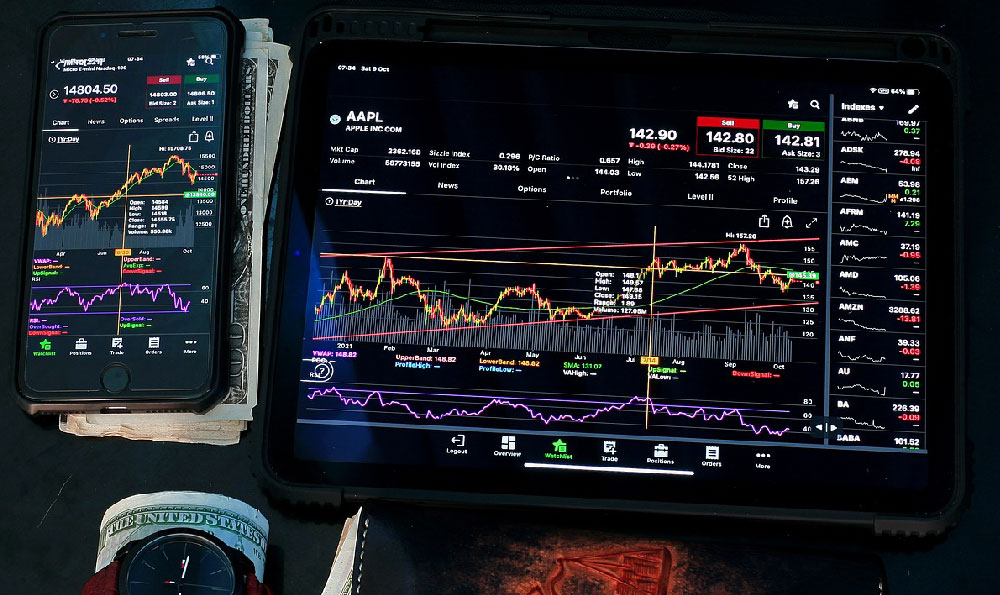Bitcoin Investment: Navigating the Volatile Waters of Cryptocurrency
Investing in Bitcoin has become a prominent topic in the financial world, sparking both excitement and apprehension. Is it a safe haven for your money, or a perilous gamble? Understanding the landscape is crucial before diving into the world of cryptocurrency. This analysis explores the risks and rewards associated with Bitcoin investment, providing a balanced perspective to help you make informed decisions.
The Allure of Bitcoin: Potential Upsides
Bitcoin’s appeal stems from several key factors. Its decentralized nature, meaning it isn't controlled by any single entity like a government or central bank, is a significant draw for many investors. This offers a degree of autonomy and independence from traditional financial systems, which is particularly attractive during times of economic uncertainty.

Furthermore, the potential for high returns has fueled the Bitcoin frenzy. Early adopters reaped substantial rewards as Bitcoin's value skyrocketed, and the hope of replicating those gains continues to attract new investors. Bitcoin's scarcity, with a limited supply of 21 million coins, also contributes to its potential for price appreciation. The theory is simple: as demand increases and supply remains fixed, the price will inevitably rise.
Beyond speculative investment, Bitcoin offers practical advantages. It facilitates faster and often cheaper international transactions compared to traditional methods. This is particularly beneficial for individuals and businesses operating across borders. Moreover, the underlying blockchain technology has far-reaching applications beyond cryptocurrency, including supply chain management, voting systems, and data security, fueling long-term interest in the technology.
Unmasking the Risks: Potential Downsides
While the potential upsides are enticing, Bitcoin investment is not without significant risks. The most prominent concern is its extreme volatility. Bitcoin's price can fluctuate dramatically in short periods, leading to substantial gains or losses. This volatility is driven by factors such as market sentiment, regulatory announcements, technological developments, and even social media trends. Predicting these fluctuations is notoriously difficult, making Bitcoin investment highly speculative.
Security concerns also loom large. Bitcoin exchanges and wallets are vulnerable to hacking and theft. While blockchain technology itself is secure, the platforms used to buy, sell, and store Bitcoin are often targets for cybercriminals. Investors can lose their entire investment if their accounts are compromised.
Regulatory uncertainty poses another challenge. The legal status of Bitcoin varies across different countries, and governments are still grappling with how to regulate cryptocurrencies. Changes in regulations can significantly impact Bitcoin's price and adoption. The potential for increased regulation or even outright bans in some jurisdictions adds a layer of risk for investors.
Furthermore, Bitcoin's environmental impact is a growing concern. The process of "mining" new Bitcoins requires significant computing power, which consumes vast amounts of energy. This energy consumption contributes to carbon emissions, raising environmental concerns and prompting calls for more sustainable alternatives.
Due Diligence: Mitigating the Risks
While inherent risks exist, several steps can be taken to mitigate them and increase the likelihood of a positive outcome when investing in Bitcoin.
- Education is paramount: Before investing, thoroughly research Bitcoin, blockchain technology, and the cryptocurrency market. Understand the risks involved and the factors that can influence Bitcoin's price. Follow reputable news sources and consult with financial professionals.
- Diversify your portfolio: Don't put all your eggs in one basket. Bitcoin should only be a small portion of a well-diversified investment portfolio. Diversification helps to reduce overall risk by spreading investments across different asset classes.
- Start small: Begin with a small investment that you can afford to lose. This allows you to gain experience and learn about the market without risking a significant amount of capital. Gradually increase your investment as you become more comfortable.
- Secure your Bitcoin: Use strong passwords and enable two-factor authentication on your exchange and wallet accounts. Consider using a hardware wallet, which stores your Bitcoin offline and provides an extra layer of security.
- Stay informed: Keep up-to-date with the latest news and developments in the cryptocurrency market. Pay attention to regulatory announcements, technological advancements, and market trends.
- Consider Dollar-Cost Averaging (DCA): Invest a fixed amount of money at regular intervals, regardless of the price. This helps to smooth out price fluctuations and reduce the impact of volatility.
The Verdict: A Calculated Gamble
Bitcoin investment is neither inherently safe nor inherently risky. It's a calculated gamble that requires careful consideration, thorough research, and a clear understanding of the risks involved. The potential for high returns is undeniable, but so is the risk of substantial losses.
Ultimately, the decision to invest in Bitcoin depends on your individual risk tolerance, financial goals, and investment horizon. If you are risk-averse or have a short-term investment horizon, Bitcoin may not be the right choice for you. However, if you are comfortable with risk and have a long-term perspective, Bitcoin can be a valuable addition to a well-diversified portfolio.
Before taking the plunge, seek advice from a qualified financial advisor who can assess your individual circumstances and help you make informed decisions. Remember, past performance is not indicative of future results, and investing in Bitcoin always involves a degree of risk.












